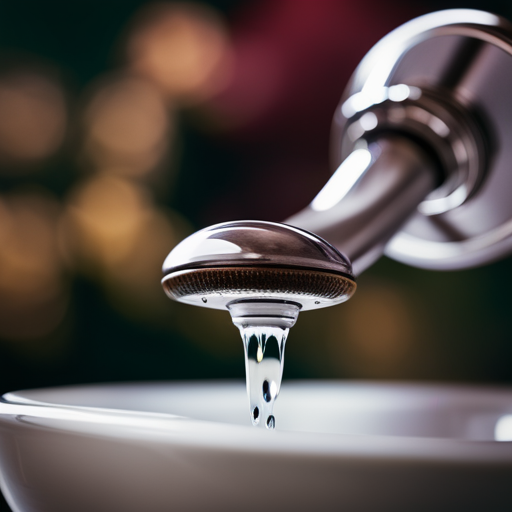If you’re a resident of Orlando, you may be all too familiar with the struggles of hard water. From scaling in your pipes to soap scum buildup on your shower tiles, hard water can cause a range of issues that can impact your daily life.
But what exactly causes hard water in Orlando, and what can you do about it? This article will provide you with all the information you need to know about Orlando’s hard water woes.
First, let’s take a closer look at what exactly hard water is. In Orlando, hard water is defined as water that contains a high level of dissolved minerals such as calcium, magnesium, and iron. These minerals can cause a range of problems, from reducing the efficiency of your appliances to leaving your skin feeling dry and itchy.
In the following paragraphs, we’ll explore the effects of hard water in more detail and give you some tips on how to improve your water quality. So, whether you’re a long-time resident of Orlando or new to the area, keep reading to learn more about how to tackle your hard water woes.
Key Takeaways
– Hard water in Orlando is caused by high levels of dissolved minerals, which can lead to scaling in pipes and reduced appliance efficiency.
– Water softeners and reverse osmosis systems can be effective in improving water quality and reducing the negative effects of hard water.
– Regular cleaning of fixtures and appliances can help prevent damage and maintain proper functioning.
– Water filtration systems can remove contaminants and improve the taste and odor of water, leading to clean, safe, and great-tasting water in the home.
Water Hardness in Orlando
You may experience issues with scaling in your pipes and fixtures and soap scum buildup due to Orlando’s hard water, which has a hardness of 129 ppm. This means that Orlando’s water contains high levels of dissolved minerals like calcium, magnesium, and iron.
These minerals can cause problems in your home, including clogged pipes and reduced appliance efficiency. To address these issues, Orlando’s water goes through a treatment process before distribution.
However, the treatment process does not remove all the minerals that cause hardness. It is recommended to install a water softener or reverse osmosis system to remove these minerals and improve the quality of your water.
These systems work by removing minerals through a process of ion exchange or filtering, resulting in softer water that is kinder to your home and appliances.
Effects of Hard Water
Experiencing the effects of hard water can lead to increased cleaning and maintenance tasks for your household appliances and fixtures. The high levels of dissolved minerals in hard water can cause scaling in pipes and fixtures, leading to reduced water flow and potential damage. Additionally, the buildup of soap scum can make cleaning more difficult and time-consuming.
To prevent scaling and reduce the need for appliance maintenance, consider investing in a water softener or using other scaling prevention methods. Regularly cleaning fixtures and appliances can also help to keep them functioning properly. Finally, be mindful of the type of cleaning products you use, as some can exacerbate the effects of hard water.
By taking these steps, you can minimize the negative effects of hard water and keep your household running smoothly.
Improving Water Quality
Improving the quality of your drinking water can have a positive impact on the health and well-being of your household. One way to do this is by using a water filtration system.
There are many water filtration options available, including whole-house systems and point-of-use systems. Whole-house systems filter all of the water coming into your home, while point-of-use systems filter water at specific locations, such as your kitchen sink or shower. Both options can remove contaminants and improve the taste and odor of your water.
Another way to improve the quality of your drinking water is by using water treatment options. Water treatment can remove specific contaminants, such as lead or bacteria, and can also soften hard water. Water softeners remove minerals that cause hardness, while reverse osmosis systems remove a variety of contaminants.
It’s important to research and choose the right water treatment option for your specific needs and water quality issues. By improving the quality of your drinking water, you can enjoy clean, safe, and great-tasting water in your home.
Conclusion
Now that you know more about Orlando’s hard water problem, it’s time to take action to improve your water quality.
You can start by investing in a water softener or filter to remove the minerals that cause hard water. These solutions can help prevent scaling in pipes, soap scum buildup, and improve the efficiency of your appliances.
Remember, understanding your water quality is important for your health and home decisions.
By taking steps to improve your water quality, you can ensure that you have clean, safe, and healthy water for you and your family.
Don’t let hard water woes ruin your daily routine, take action today and enjoy the benefits of soft water.
